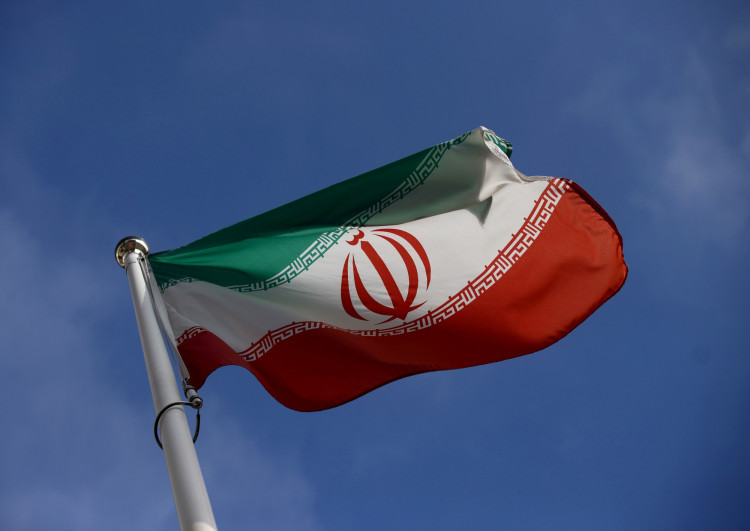Iran is bracing for potential diplomatic and nuclear escalation as the International Atomic Energy Agency (IAEA) Board of Governors prepares to release a statement critical of the country. According to Iranian sources speaking to Al Mayadeen, Tehran's anticipated response involves injecting gas into centrifuges and activating advanced machinery already stationed at its nuclear facilities. This development raises tensions at a time when Iran's nuclear stockpile is increasingly under international scrutiny.
Despite the heightened rhetoric, Iranian officials have stressed their continued commitment to diplomacy. In a televised interview, Foreign Minister Abbas Araghchi underscored Iran's willingness to engage in dialogue, while also acknowledging that "the nuclear agreement no longer carries the same characteristics it once had." The 2015 nuclear deal, abandoned by the United States during the Trump administration, has become a contentious focal point, with Iran now enriching uranium to levels significantly beyond its original stipulations.
A confidential report by the United Nations' nuclear watchdog, obtained Tuesday by The Associated Press, revealed that as of October 26, Iran's stockpile of uranium enriched up to 60% purity had risen by 17.6 kilograms since August, totaling 182.3 kilograms. This material, close to weapons-grade levels, poses a serious concern among Western nations, with U.S. State Department spokesperson Matthew Miller emphasizing, "The Iranian regime continues to amass a growing stockpile of highly enriched uranium for which there is no credible civilian purpose."
The IAEA report outlined that Iran's total enriched uranium stockpile has reached 6,604.4 kilograms, with levels far surpassing the limitations set in the original nuclear agreement. Rafael Mariano Grossi, the IAEA's director-general, recently visited Tehran and discussed technical verification measures with Iranian officials, including Mohammad Eslami of the Atomic Energy Organization. The visit resulted in a tentative commitment by Iran to pause further expansion of its enriched uranium reserves, although skepticism remains over the durability of this pledge.
One day following Grossi's departure, IAEA inspectors verified Iran's preliminary steps to curb stockpile growth at its Fordow and Natanz facilities. However, a senior Western diplomat cautioned that these efforts could unravel if the IAEA board issues a censure resolution. The diplomat, speaking anonymously, warned of a potential backlash, echoing past instances where Iran accelerated its nuclear program in response to such measures.
Complicating the already delicate situation is Iran's apparent defiance of international inspections and oversight. Grossi has highlighted that Tehran possesses enough near-weapons-grade uranium to manufacture several nuclear weapons if it were further enriched. Although Iran maintains that its nuclear ambitions are purely peaceful, concerns linger over possible clandestine enrichment efforts. The IAEA remains unable to verify that none of Iran's centrifuges have been diverted for hidden purposes.
Iran's strained relationship with the IAEA and Western powers has been further challenged by the backdrop of geopolitical shifts. Donald Trump's reelection raises questions about renewed tensions, given his administration's history of maximum pressure campaigns and unilateral withdrawal from the nuclear agreement. Iran, in turn, has gradually abandoned limits on enrichment since the deal's collapse.
Amidst this tense climate, diplomatic channels remain active, albeit precariously. Western diplomats, particularly from the E3 group-France, Germany, and the United Kingdom-along with U.S. backing, are reportedly prepared to advance a resolution censuring Iran. The decision comes at a critical juncture, as Israel and Iran have traded recent missile attacks and regional volatility persists.
The forthcoming IAEA Board of Governors meeting in Vienna serves as a pivotal moment. Iran's mission to the United Nations declined to comment, and diplomatic talks led by Grossi have yet to produce tangible progress. The agency's monitoring capabilities remain limited, as Iran has denied access to critical data and barred several experienced inspectors since September 2023.
"The windows of diplomacy remain open," reiterated Araghchi, reflecting both an assertion of Iran's agency and a cautious overture. Whether this fragile openness will survive another round of international pressure remains uncertain, as Tehran weighs its options in the balance of geopolitical power and nuclear ambition.




